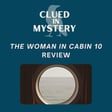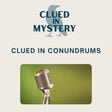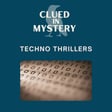
Co-authored Mysteries (part 1)
While not a sub-genre, mysteries that are written by multiple authors deserve special mention. In today's episode, Brook and Sarah discuss examples of different co-authored mysteries and provide an update on their own.
Discussed and Mentioned
The Fate of Fenella: by Twenty-four Authors (1892)
The Floating Admiral (1931) Members of the Detection Club; Victor Whitechurch, G. D. H. Cole and Margaret Cole, Henry Wade, Agatha Christie, John Rhode, Milward Kennedy, Dorothy L. Sayers, Ronald Knox, Freeman Wills Crofts, Edgar Jepson, Clemence Dane and Anthony Berkeley
The Documents GHS and Margaret Cole
Robert Eustace (Pen name of Eustace Barton)
L.T. Meade
Dorothy L. Sayers
Ellery Queen (Pen name of Daniel Nathan and Emmanuel Lepofsky)in the Case (1930) Robert Eustace and Dorothy L. Sayers
The Agathas (2022) Kathleen Glasgow and Liz Lawson
The Night in Question (2023) Kathleen Glasgow and Liz Lawson
James Patterson
State of Terror (2021) Hillary Rodham Clinton and Louise Penny
Lincoln Child and Douglas Prescott
An Anonymous Girl (2019) Greer Hendricks and Sarah Pekkanen
For more information
Instagram: @cluedinmystery
Contact us: hello@cluedinmystery.com
Music: Signs To Nowhere by Shane Ivers – www.silvermansound.com
Sign up for our newsletter: https://cluedinmystery.com/clued-in-chronicle/
Join the Clued in Cartel for as little as $12 USD/year: https://cluedinmystery.com/clued-in-cartel/
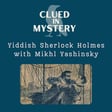
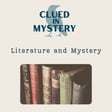
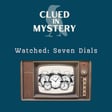
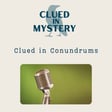
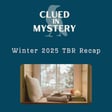
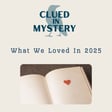
![[Re-release] Anthony Berkeley image](https://media.zencastr.com/cdn-cgi/image/width=112,quality=85/image-files/61e1c276e3ec42007857cff9/e7c778ac-a2ba-4809-9a5c-7cd39d167834.jpg)
![[Bonus] Wake Up Dead Man image](https://media.zencastr.com/cdn-cgi/image/width=112,quality=85/image-files/61e1c276e3ec42007857cff9/e276ac32-e664-464f-956c-7699bdb60aa5.jpg)
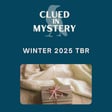
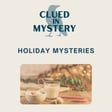
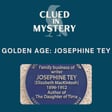
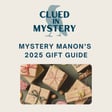
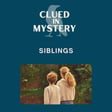

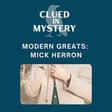
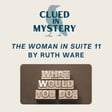
![[Bonus] Read Along: Daughter of Time image](https://media.zencastr.com/cdn-cgi/image/width=112,quality=85/image-files/61e1c276e3ec42007857cff9/b953ad72-c43e-48ca-a18a-b3c216ab90ee.jpg)
